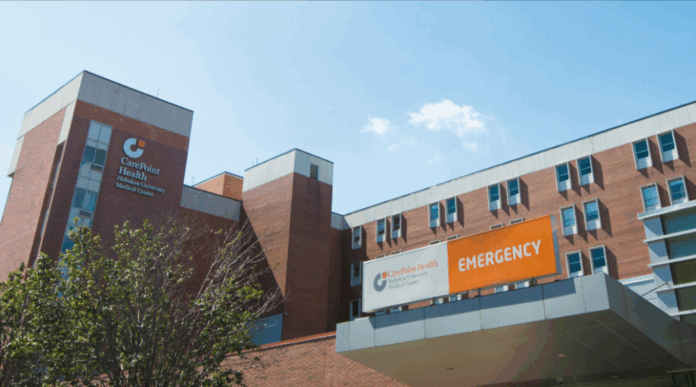New Jersey’s healthcare landscape is currently defined by two disparate but equally vital topics: the looming financial crisis threatening a crucial Jersey City hospital and a burgeoning grassroots movement advocating for individual and parental medical rights across the state. These parallel narratives underscore the critical decisions facing New Jersey residents and policymakers alike as they strive to shape the future of health and wellness in the Garden State.
Lifeline Needed for Hudson County’s Safety-Net Hospital
Heights University Hospital, a vital care facility in Jersey City, is once again at the center of an urgent financial debate, requiring immediate government intervention to avoid drastic service reductions. The hospital, formerly known as Christ Hospital, is grappling with massive losses estimated to exceed $60 million annually, despite a reported $300 million investment by its current operator, Hudson Regional Health. This ongoing financial distress has prompted the hospital’s leadership to issue a stern warning: without substantial financial support from the state, it will be forced to suspend “non-essential services” within a month.
The potential cuts at this safety-net hospital—a facility that disproportionately serves low-income residents reliant on programs like Medicare and Medicaid—have raised alarms among local residents and public officials. The concern is that the closure or major reduction of services would leave a dangerous void in emergency and acute care for the Jersey City Heights community, a burden that the nearby Jersey City Medical Center may not be able to absorb.
In response, state lawmakers are actively championing an emergency funding proposal, seeking up to $25 million in state aid to serve as a lifeline. While this emergency funding is seen as a necessary short-term measure to stave off service cuts and maintain essential emergency room operations, experts and officials acknowledge that this sum alone may not resolve the hospital’s deeper, systemic financial challenges. The fate of Heights University Hospital remains uncertain as legislators race the clock to secure the necessary funds and ensure continued access to critical care for the area’s most vulnerable population. For ongoing coverage of health and wellness topics in New Jersey, including hospital issues, visit our dedicated section. (https://explorenewjersey.org/category/health-wellness/)
Health Freedom Advocates Rally at Gala Event
In a completely different corner of the state’s health discussion, a powerful “health freedom” movement is gaining momentum. The New Jersey Public Health Innovation PAC (NJPHIPAC), an independent, non-profit, non-partisan, grassroots Political Action Committee, held its annual Health Freedom Gala to mobilize support for its core mission: defending the fundamental right of New Jersey residents to make all medical decisions for themselves and their families without coercion.
Held on September 25, 2025, the gala was a significant gathering for parents, educators, health advocates, and business owners united by a shared commitment to informed consent and parental rights in healthcare. NJPHIPAC works to advance this vision by actively engaging in electioneering—supporting and elevating political candidates who pledge to protect medical autonomy.
The organization’s mission centers on the belief that public health flourishes when the unique health circumstances of each individual, or their “bio-individuality,” are honored. By hosting events like the gala, NJPHIPAC raises essential funds and builds a political force to influence legislation and elections, ensuring that the voices of families and advocates are heard loud and clear by the state’s decision-makers ahead of the crucial 2025 election cycle.
The video below offers an on-the-ground look at the urgent situation facing Heights University Hospital.
Will emergency state aid save troubled Jersey City hospital? – YouTube












